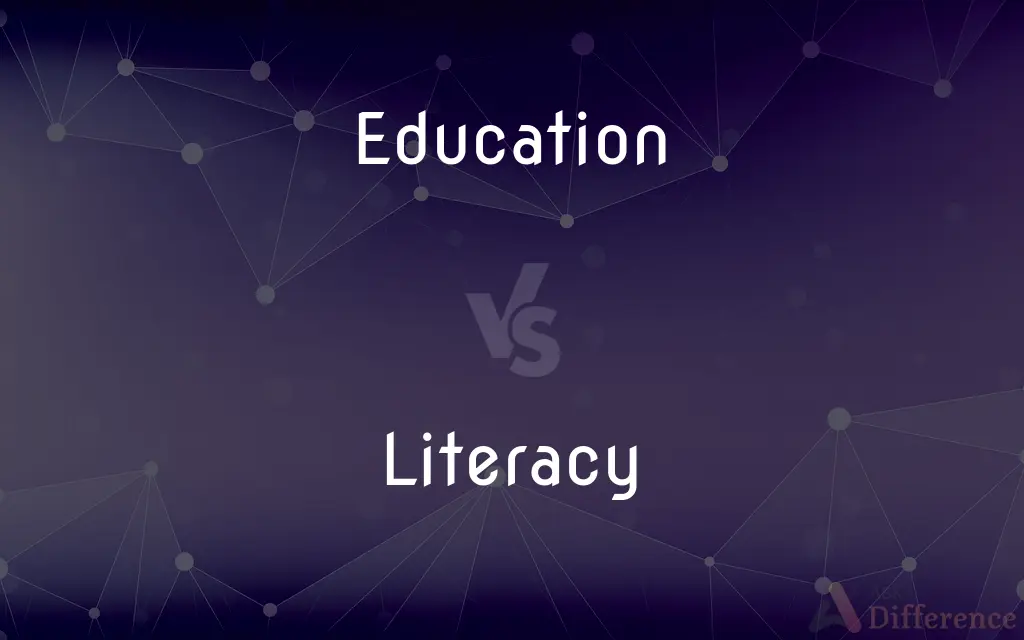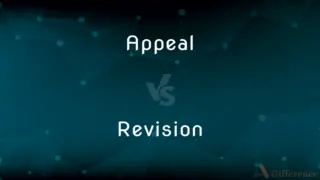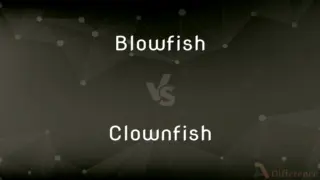Education vs. Literacy — What's the Difference?
By Tayyaba Rehman — Updated on September 16, 2023
Education is a broad process of acquiring knowledge, skills, and understanding through formal and informal means. Literacy is a specific skill set that involves reading, writing, and sometimes basic math. Education encompasses literacy but goes beyond it.

Difference Between Education and Literacy
Table of Contents
ADVERTISEMENT
Key Differences
Education is a broad term that includes a range of knowledge and skills acquired through various means.
Literacy, on the other hand, is a specific capability, often considered a subset of education, focusing mainly on reading and writing.
Education includes not only academic subjects but also social, emotional, and moral learning.
Literacy is generally considered a foundational skill, a starting point for more advanced forms of education and understanding.
Education can take place in formal settings like schools or informally through life experiences, while literacy usually refers to a standardized level of proficiency in reading and writing.
ADVERTISEMENT
Comparison Chart
Scope
Broad
Narrow
Subject Matter
Multiple Subjects
Reading and Writing
Formal vs Informal
Both
Usually Formal
Skill vs Knowledge
Both
Skill
Interdisciplinary Aspects
Can Be Interdisciplinary
Generally Not
Compare with Definitions
Education
Education involves structured teaching and learning.
Online platforms are revolutionizing how education is delivered.
Literacy
Literacy is the ability to read and write.
Literacy rates have improved globally over the past few decades.
Education
Education extends beyond the classroom to life skills.
Financial education is crucial for managing personal finances.
Literacy
Literacy is often the first step in formal education.
Literacy skills are generally acquired early in one's educational journey.
Education
Education is a lifelong pursuit.
Education doesn't stop when you leave school; it continues throughout life.
Literacy
Literacy is often measured by standardized tests.
Literacy tests are used to evaluate educational systems.
Education
Education is the process of acquiring knowledge through study.
Her education at a prestigious university prepared her for a challenging career.
Literacy
Literacy encompasses understanding text and context.
Literacy is not just decoding words but understanding their meaning.
Education
Education is the process of facilitating learning, or the acquisition of knowledge, skills, values, morals, beliefs, and habits. Educational methods include teaching, training, storytelling, discussion and directed research.
Literacy
Literacy enables access to information.
Literacy is crucial in today's information-driven society.
Education
The act or process of educating or being educated.
Literacy
Literacy is popularly understood as an ability to read and write in at least one method of writing, an understanding reflected by mainstream dictionaries. In this view, illiteracy would be considered to be the inability to read and write.Some researchers suggest that the history of interest in the concept of “literacy” can be divided into two periods.
Education
The knowledge or skill obtained or developed by a learning process.
Literacy
The condition or quality of being literate, especially the ability to read and write. See Usage Note at literate.
Education
A program of instruction of a specified kind or level
Driver education.
A college education.
Literacy
The condition or quality of being knowledgeable in a particular subject or field
Cultural literacy.
Biblical literacy.
Education
The field of study that is concerned with the pedagogy of teaching and learning.
Literacy
The ability to read and write.
Education
An instructive or enlightening experience
Her work in an animal shelter was a real education.
Literacy
The ability to understand and evaluate something.
Computer literacy; media literacy
Education
(uncountable) The process of imparting knowledge, skill and judgment.
Good education is essential for a well-run society.
Literacy
State of being literate.
Education
(countable) Facts, skills and ideas that have been learned, especially through formal instruction.
He has had a classical education.
The educations our children receive depend on their economic status.
Literacy
The ability to read and write
Education
The act or process of educating; the result of educating, as determined by the knowledge skill, or discipline of character, acquired; also, the act or process of training by a prescribed or customary course of study or discipline; as, an education for the bar or the pulpit; he has finished his education.
To prepare us for complete living is the function which education has to discharge.
Education
The activities of educating or instructing or teaching; activities that impart knowledge or skill;
He received no formal education
Our instruction was carefully programmed
Good teaching is seldom rewarded
Education
Knowledge acquired by learning and instruction;
It was clear that he had a very broad education
Education
The gradual process of acquiring knowledge;
Education is a preparation for life
A girl's education was less important than a boy's
Education
The profession of teaching (especially at a school or college or university)
Education
The result of good upbringing (especially knowledge of correct social behavior);
A woman of breeding and refinement
Education
The United States federal department that administers all federal programs dealing with education (including federal aid to educational institutions and students); created 1979
Education
Education is the development of intellectual and moral faculties.
Education should aim to make us better citizens.
Common Curiosities
Is Education just about academics?
No, education encompasses academic, social, emotional, and even physical learning.
Is Literacy a part of Education?
Yes, literacy is generally considered a foundational element of education.
What is Education?
Education is a broad process that involves acquiring knowledge, skills, values, and attitudes.
What is Literacy?
Literacy is the ability to read, write, and understand text.
Is Education a human right?
Yes, education is considered a fundamental human right.
What are the types of Education?
Education can be formal, informal, or non-formal.
How can Education be improved?
Educational improvement can come through curriculum development, teacher training, and resource allocation.
Is Literacy static?
No, literacy skills can evolve and adapt, particularly with the introduction of digital literacies.
Why is Literacy important?
Literacy is essential for personal empowerment and civic participation.
What's the role of technology in Education?
Technology can significantly augment educational practices, enabling remote learning and personalized experiences.
Is Literacy enough for a good job?
Literacy may be necessary but is often not sufficient for specialized jobs, which require broader educational qualifications.
Is Literacy just reading and writing?
While primarily focused on reading and writing, literacy can also extend to numeracy.
How is Literacy measured?
Literacy is often assessed through standardized testing methods.
What's the ultimate goal of Education?
The ultimate aim of education varies but often includes fostering critical thinking, moral values, and community engagement.
Can you have Education without Literacy?
While possible, an education devoid of literacy skills is generally considered incomplete.
Share Your Discovery

Previous Comparison
Appeal vs. Revision
Next Comparison
Blowfish vs. ClownfishAuthor Spotlight
Written by
Tayyaba RehmanTayyaba Rehman is a distinguished writer, currently serving as a primary contributor to askdifference.com. As a researcher in semantics and etymology, Tayyaba's passion for the complexity of languages and their distinctions has found a perfect home on the platform. Tayyaba delves into the intricacies of language, distinguishing between commonly confused words and phrases, thereby providing clarity for readers worldwide.














































